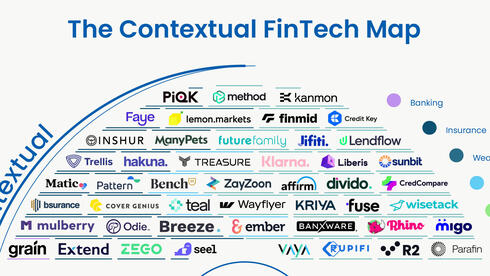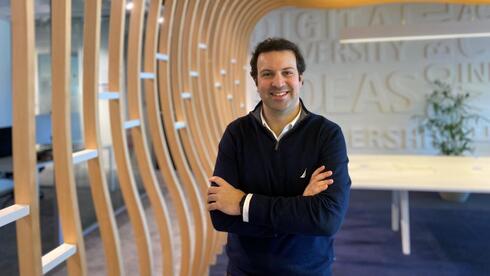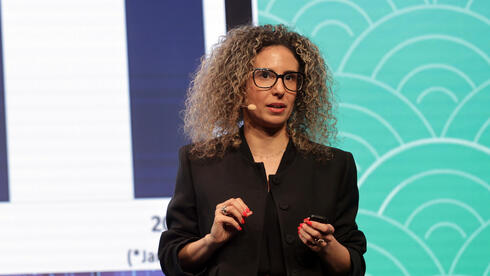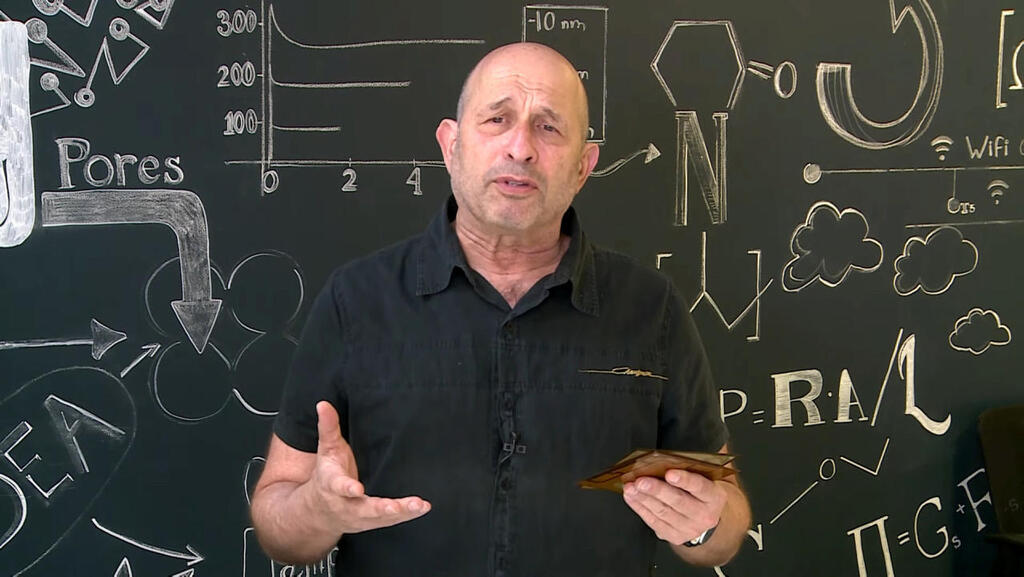
The friends who will help the Nano Dimension CEO take over the company
The friends who will help the Nano Dimension CEO take over the company
Yoav Stern insists on repricing his options, even though, according to consulting companies, the move should worry shareholders. That’s how it goes when a CEO buys a company owned by the chairman of the remuneration committee who will now authorize his take over of Nano Dimension
How deep is Nano Dimension's Pandora's box? Apparently, CEO Yoav Stern's request to reprice his options so that they immediately go into the money and at the same time dramatically increase the indemnification for the directors, are only the tip of the iceberg as far as the company's frustrated shareholders are concerned.
The frustration of the investors in Nano Dimension is mainly due to the fact that the company raised $1.5 billion in the last year and a half and promised to make strategic purchases, only to not make a single deal that would fundamentally change its business situation. As a result, it is also traded at a value of $610 million, half of the value of the cash in its coffers, which is at $1.2 billion.
In the meantime, Nano Dimension is seeking to upgrade the conditions of its executives, led by CEO Yoav Stern, who is seeking to reprice his options so that their exercise price drops from $6.16 to only $2.46. This is not only a generous reduction, but especially generous considering the fact that it is Nano Dimension's current share price, so the options immediately go into the money and will allow Stern to become the largest shareholder in the company within a year with a 10% holding. Along the way, he will also net tens of millions of dollars.
At the same time, Nano Dimension requests to cancel the indemnity ceiling for its directors and managers, as opposed to the existing practice of setting a ceiling at a certain amount or percentage of the company's equity. The third issue that will come up at the meeting in two weeks is the increase of Nano's share capital from 500 million shares to 800 million shares, and this despite the fact that it currently has a pool of another 200 million unissued shares.
The consulting companies object
Calcalist has seen recommendations from the American consulting companies ISS and Glass Lewis, which unusually recommend the shareholders to oppose the proposals put forward by Nano Dimension and which were approved by its board of directors. This is a rather unusual event, since unlike the Israeli company Entropy, for example, ISS and Glass Lewis, tend to recommend approving proposals that have passed the board of directors. However, in the case of Nano Dimension and its proposals, the wording of the consulting companies is unequivocal: "The new terms of the options for the CEO raise substantial doubts about the correct conduct of companies in such situations," ISS writes. Glass Lewis is even more emphatic: "This is excessive compensation with a vesting period that is too short," before adding: "The wording according to which Stern is 'risking his fortune' in order to exercise the options is misleading. Stern will have to pay $50,000 for the right to exercise a package of options with a current value of $50 million. The shareholders should also be bothered by the acceleration clause in the vesting of Stern's options in the event of a change in control of the company."
Both companies also believe that there is no need for such a huge number of shares, which is explained by Nano Dimension's desire to take advantage of opportunities for recruitments and purchases in the market. However, Nano had already leveraged the tide on Wall Street to the maximum in 2021, raising $1.5 billion which it is currently burning mainly on its current needs without large and strategic purchases. The opposition to the third section, of removing the ceiling for indemnification of directors, is explained in both companies by the fact that it harms the interests of the shareholders. "Nano Dimension's shareholders should be disturbed by the changes in the formulation of the new conditions that the company seeks to include in the indemnification conditions that were previously set at 25% of the capital or $1 million, whichever is lower."
Nano Dimension doesn’t have any Israeli institutional investors, but it did receive investments from first-class institutions in the U.S., including BlackRock, Morgan Stanley, UBS, and Kathy Wood's ARK, which thought that Nano Dimension had advanced Israeli technology in the field of 3D printing as marketed by the company in its roadshow.
What is the reason for the extraordinary generosity of the Nano Dimension Board of Directors? The answer lies in the generosity that Stern showed to them in the past, led by Yaron Eitan, who serves not only as a director but also as the chairman of the compensation committee. Eitan and Stern go back a long way together. Stern served as CEO of DVTEL, which Eitan founded and which was sold in 2015 to an American company for $92 million. Stern, who was appointed CEO of Nano Dimension in January 2020, brought Eitan to the board in February of that year. Six months later, he provided Eitan with a reward that resembles his own - for a payment of $150,000, Eitan can receive a package of 1.5 million options at an exercise price of $2.25 for three years. In fact, these options are also already in the money. Eitan is an entrepreneur who has been somewhat forgotten in recent years, but in the 1990’s he starred in the headlines as the founder of a geotech company that promised to establish wireless communication networks around the world, raised $800 million for this purpose and collapsed with great fanfare a few years later.
The DeepCube debacle
But Stern apparently especially believes in Eitan's ventures. In April 2021, Nano Dimension purchased DeepCube, which Eitan founded with Dr. Eli David, who was also a director at Nano Dimension at the time it set out to purchase the company in a deal which included $40 million in cash and another $30 million in shares. Until the purchase, DeepCube was a startup in its infancy which completed only one fundraising round of about $8 million. The company still had no product, but only technology in the field of artificial intelligence and an unclear connection to 3D printers that Nano apparently specializes in. Beyond the cash, Nano's board of directors, which included Eitan and David, also set up a protection mechanism against the decline of Nano's stock, so that even after it crashed they still received compensation for the equity part of the deal as well. David, by the way, left the board of directors shortly after the transaction and today he only serves as VP of Technologies for DeepCube.
The DeepCube purchase was just one of a series of acquisitions made by Nano Dimension in 2021, apparently to fulfill the promise to those who invested in the series of fundraising rounds to make it a leader in the 3D printing market. However, already in the 2021 annual reports, Nano Dimension included a write-off of $140 million for the purchases it made, the largest and most prominent of which was DeepCube. This write-off led Nano Dimension to a huge loss of $223 million in 2021, with revenues of only $10 million.
In fact, since Stern also began serving as chairman of the board in March 2021, he has added a series of new directors, some of whom are related to him or Eitan. Today, the directors appointed during Stern's tenure make up more than half of the board. The last to join, for example, was Igal Rotem. Eitan invested in Rotem’s Credorax company, which Rotem founded and sold this year. Shortly before that, Saul Simon, a high-tech entrepreneur who used to be a pilot in the Air Force like Stern and Zivi Nedivi, joined the board, with Nedivi serving as the president of Nano Dimension for the past few years.
Publication of the reports is delayed
Meanwhile, the addition of these names to Nano Dimension has not been particularly beneficial to its business sides. The company has not yet published the financial reports for the third quarter even though the report season on Wall Street has already ended. In the first half of 2022, it recorded revenues of only $21 million and a loss of $73 million, so even the purchases that were made and for which the investment was written off, did not yield the expected return. As of now, Nano is traded around a price of $2.4 per share, which reflects a value of $610 million for the company, and a price that may make Stern a very rich man if the shareholders approve his request.














